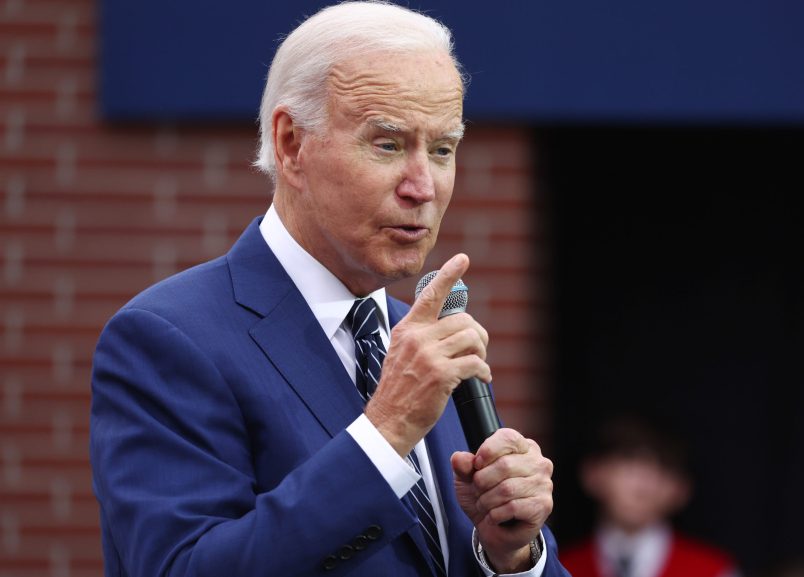One of Democrats’ pet peeves is that President Biden has not only overseen a robust economy with almost unprecedentedly low levels of unemployment, his policies actually have some decent claim to responsibility for that record. And yet he gets no credit for it. Not only has Biden been mired in low-40s approval for the last two years, his ratings on the economy are some of his weakest.
This is definitely annoying and certainly unfair (what isn’t?). But it shouldn’t seem new or unexpected. If you’ve been following politics closely for a few decades you’ll remember that Presidents Reagan, Clinton and Obama faced a very similar issue. All three presidents had a significant interval when the economy was demonstrably doing well and yet got zero credit for it or even any clear public recognition that the economy was in good shape.
I was apparently too lazy to pull together the specific polling and economic numbers to illustrate this point, but Bill Scher did pull the numbers together for a recent post at The Washington Monthly.
Of course, explaining the phenomenon and demonstrating that it is in no way unique is not the same as solving it. Joe Biden has to win an election in little more than a year. Is there any reason to think that public approval of his stewardship of the economy might improve by this time next year?
Scher is cautiusly optimistic. And I think he’s right.
Historical evidence suggests you need a solid year of good economic news for it to shape public opinion about the economy and reflect on the incumbent president. Biden supporters will argue, very reasonably, that the economy has been quite strong for awhile. You’ve got healthy growth and super low unemployment. Inflation is going down. And that dark spot of inflation is basically explained by the economic shocks of the pandemic. The U.S. has demonstrably done better on growth, inflation and unemployment than almost every other peer economy in Europe and Asia.
Isn’t that enough?
Not really. Because that’s not quite the whole picture. And to understand that we have to look at the particulars of inflation.
First, no one in the U.S. below the age of 60 or even 65 has a lived experience of high inflation as an adult, which is the relevant metric since we’re talking about the experience of people responsible for running a household or buying basic necessities. The inflation shock was big and sustained.
Inflation also affects people in a specific way. In both a 3% unemployment economy and a 7% economy, the vast majority of people have a job. In the latter case, people see others who are out of work and they have more fear that they might lose their jobs as well. But the immediate economic situation of the overwhelming percentage of the population is unaffected. On the contrary, inflation hits everyone and has a particular impact on the working and middle class families who spend a high percentage of their income on basic commodities like food and fuel. It’s no surprise that spiking inflation has a big impact on people’s perceptions of the economy.
Sure Republicans have gone to town demagoguing the issue. But that’s because it’s such fertile political ground. It’s reasonable to say that the economy has been strong generally and that the inflation spike is the product of a once-in-a-lifetime economic shock. But that’s hardly going to be the way average voters think about it.
The other point is that inflation has only been back to within the post-1981 historical norm for a few months. Inflation peaked in June 2022 at an annualized monthly rate of 9.1%. But as recently as February 2023 it was at 6%. If we’re calling an objectively good economy one in which inflation has cooled back to the post-1981 historical norm it’s only been good for two or three months, tops.
Of course, we live in a more polarized era than any of those other three two-term presidents. So we shouldn’t be expecting a 10 or 15 point jump, as Reagan and Clinton got. But Biden doesn’t need that much to be in a good position for reelection. If unemployment and growth remain healthy and inflation continues on its current trajectory (obviously no guarantees there) there’s good reason to think that Biden will be getting credit for an improved economy by this time next year.
Is this a guarantee? Of course not. But the numbers above make it clear that at least by historical standards it isn’t surprising that Biden isn’t getting credit for the improved economy. It would be surprising if he were.






